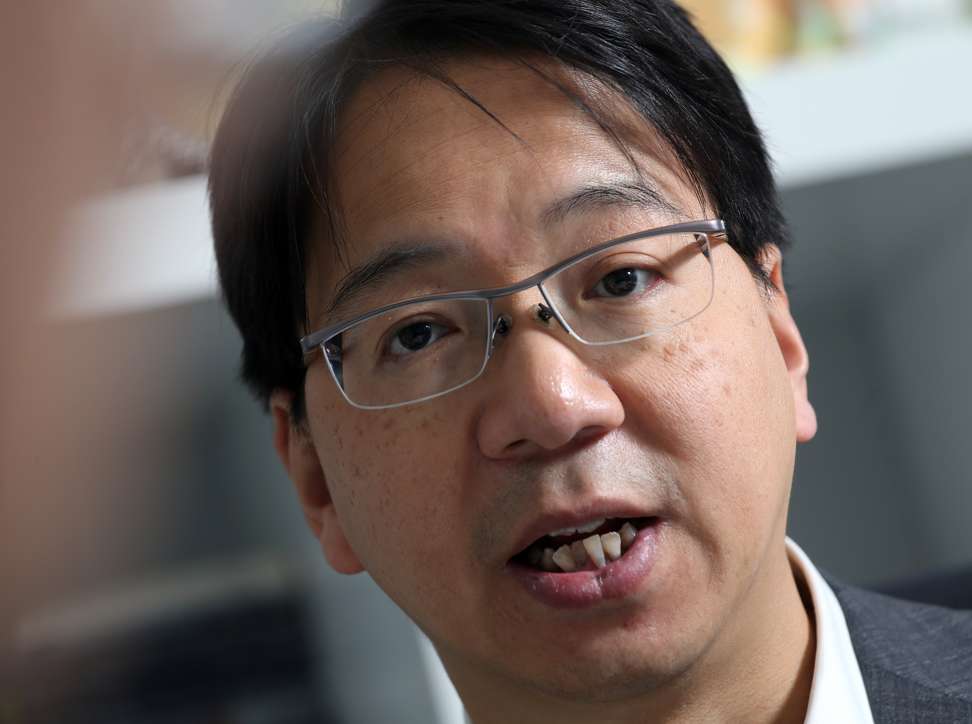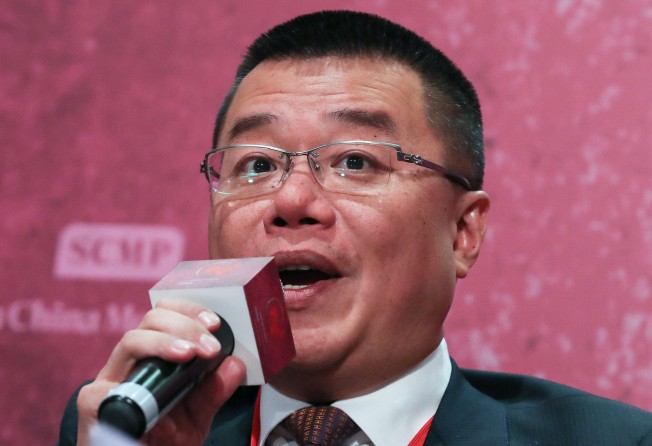
Hong Kong government faces renewed calls to revamp voter registration rules in wake of anti-graft arrests
One IT sector association head calls for objective requirements for voter eligibility, while pan-democrat lawmaker says net should not be drawn too tightly

The Hong Kong government is facing renewed calls to reform its flawed voter registration rules after a major operation by the graft-buster exposed how easy it is to exploit loopholes in the system.
The Independent Commission Against Corruption arrested 72 people in connection with vote-rigging in the information technology sector in the run-up to last year’s Legislative Council elections.
Some of the suspects were accused of accepting money via middlemen to register as electors by joining two professional organisations in the field – even though they should not have been qualified for membership.
The information technology sector is one of several Legco functional constituencies which allow anyone to register as voters as long as they are active members of certain professional groups.
IT sector stakeholders from across the political spectrum on Tuesday slammed the current practice, saying the government should not shed its gate-keeping responsibility.
“The government should come up with a set of objective requirements for voter eligibility, conduct regular inspections and prosecute unqualified voters instead of laying the blame on us [when irregularities arise],” said Witman Hung Wai-man, president of the Internet Professional Association (iProA), which is implicated in the controversy.

However, pan-democratic lawmaker Charles Mok, who won the Legco IT sector seat last year, warned that the government should draw the line carefully given the wide-ranging nature of the sector.
“The scope should be as wide as possible to enable more people working in the field to register. It should not be limited to just a small group of people,” he stressed.
Irregularities in voter registration were also evident in other sectors adopting similar rules.
An investigation conducted by the Post last year found that two pro-Beijing youth groups – HKSAR Nam Fung Youth Association and Hong Kong New Star Youth Association – enrolled as voters in the retail and wholesale sector even though they were not involved in the trade.
They were both affiliated with the Federation of Hong Kong Kowloon New Territories Hawker Associations. Like the case of the IT sector, a company or group can vote in the retail and wholesale sector as long as it is a member of one of the 85 listed bodies, including the federation.
A similar situation was found in the Chinese medicine subsector of the 1,194-member Election Committee, which last month picked Carrie Lam Cheng Yuet-ngor as the city’s next leader.
Electoral rules state that a person would be eligible to run for the Election Committee from the Chinese medicine subsector if he or she is a registered Chinese medicine practitioner under the Chinese Medicine Ordinance.
Other Chinese medicine practitioners could also become voters if they are not registered under the ordinance as long as they are members of one of 10 listed bodies, which have various membership requirements.
Kwan Ka-lun, an Election Committee member from the Chinese medicine subsector, said there were clearly loopholes in the voter registration mechanism and urged the government to plug them.
“How could the government vest such power in these groups when some do not even have a website? That is very dangerous given the lack of transparency in these groups’ operations,” he said.
To ensure no one outside the field would abuse the loopholes, Kwan said the administration could consider restricting voting rights to Chinese medicine practitioners only.
“Of course, implementing universal suffrage would be the best solution to correct all these flaws,” he added.
The spokesman for the government’s Constitutional and Mainland Affairs Bureau sidestepped the question on whether it would reform the voter registration system.
He would only say that law enforcement agencies would strictly enforce the existing electoral rules and regulations.